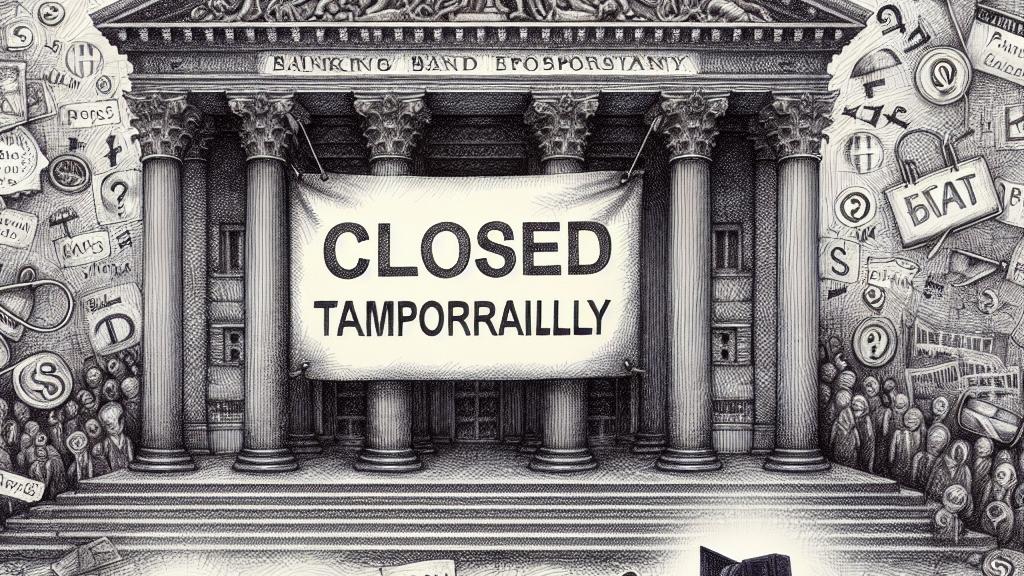Bank on Hold: Libya's Central Bank Suspends Operations Amid Kidnapping Crisis!
Overview
- Libya's Central Bank halts all functions after the abduction of its IT head, Musab Msallem.
- The kidnapping reflects deep-seated instability and threats to banking officials' safety.
- U.S. warns that forced leadership changes could disrupt Libya's access to international finance.

Crisis Unfolds: Immediate Suspension of Banking Operations
On August 18, 2024, the Central Bank of Libya, located in Tripoli, announced a complete suspension of its operations following the alarming kidnapping of Musab Msallem, the head of the technology department. In a public statement, the bank emphasized that operations would remain on hold until the safe return of Msallem, illustrating how the pervasive issue of insecurity in the region can disrupt essential banking activities. This decision not only marks a significant response to the immediate crisis but also raises serious concerns about the overall stability of financial services in Libya, which plays a crucial role in the economy.
Political Turmoil: The Context of Violence and Instability
This incident of abduction is emblematic of the ongoing political chaos in Libya, which has remained deeply fragmented since the fall of Gaddafi in 2011. The nation is effectively divided between two rival governments: one in the west, backed by militias in the capital Tripoli, and another in the east, under the influence of military leader Khalifa Haftar. The unrest has manifested in violent confrontations, notably a siege on the Central Bank just a week prior to the kidnapping, aimed at pressuring the governor, Seddik al-Kabir, to resign. The escalating violence signals a troubling trend that threatens not only the banking sector's operations but also the safety and wellbeing of Libyan citizens, as armed groups clash over control and power, leaving the broader population in a state of vulnerability.
International Repercussions: Global Concerns and Warnings
International reactions to the kidnapping and its implications for Libya’s political landscape have been swift, with U.S. ambassador Richard Norland issuing a strong warning against any attempts to replace the Central Bank’s leadership through force. Such actions could directly harm Libya's already tenuous access to crucial international financial markets, potentially stalling recovery efforts for a nation that depends on its oil revenues, managed by this bank. The need for democratic stability and a unified approach to governance has become critically clear; only through concerted efforts from within Libya and with support from international allies can the country hope to navigate these turbulent waters and reestablish a functional economy, ensuring the safety and economic wellbeing of its citizens moving forward.

Loading...